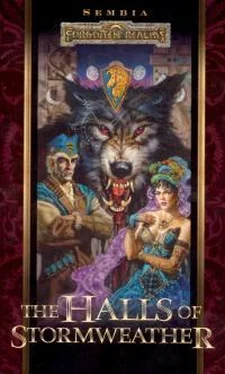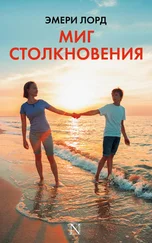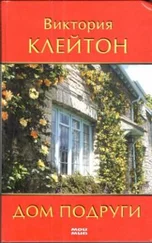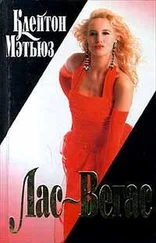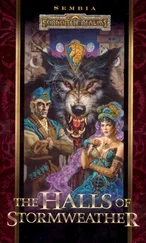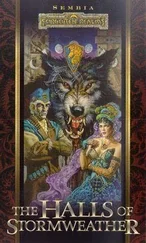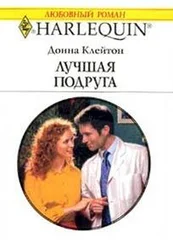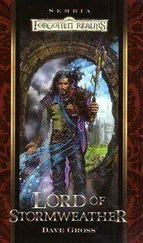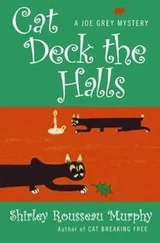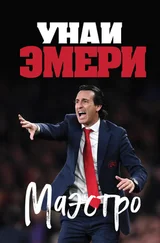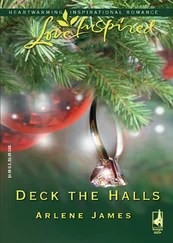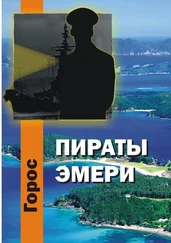“I don’t understand any of it, Habrith,” Larajin said, letting the curtain fall. “I’m not my parents’ daughter, and now there are elves trying to kidnap me. Wild elves.”
Habrith must have heard the faint note of disgust in Larajin’s voice. “Elves have their place in the world, just as humans and dwarves do,” she gently chided. She waved away a customer who had come to buy bread and hung a “Closed” sign on the shop door.
Larajin wasn’t listening. “What are they doing in Selgaunt, anyway? Wild elves are too simple and shy to cope with city life. That’s why they hide in the forest. They have no use for money, the elder master says. Nothing to spend it on. Why would they want to ransom me?”
“It’s not ransom money they’re interested in.”
The certainty of Habrith’s tone caught Larajin’s attention. She stared at Habrith. The baker was in her late sixties—older than Larajin’s mother—but though her face was wrinkled, her hair was still a rich nut brown. She wore it in a simple braid down her back. Her clothes were fashionable, but a little on the plain side. In a city where even peasants decorated their bodies with enough adornments to attract a flock of greedy crows, Habrith’s only adornment was a silver crescent moon pendant, worn on a leather thong around her neck.
Habrith’s philosophy—“simplest is best, and all ingredients in balance”—was reflected in her shop. She was known throughout the city for her bread. While other street bakers and household cooks, including Larajin’s mother, cut and shaped their bread in intricate patterns, Habrith’s product was simple, square loaves, shaped like the pans they’d baked in. But the tastes… that was where Habrith excelled. She made loaves using ingredients even Larajin’s mother hadn’t heard of.
Shonri and Habrith had been rivals, back before Larajin was born, and for a time there had been a war of loaves in the Uskevren household. Over the intervening years they’d developed a close bond, based on their shared love of their craft. Habrith, who seemed to embrace Larajin’s own thoughts on the foolishness of fashion, had become like an aunt to the girl.
Now Larajin wondered how much Habrith really knew about her. The baker hadn’t seemed one bit surprised when Larajin had told her that Shonri and Thalit weren’t her parents.
Habrith seemed to have heard Larajin’s thoughts. “I know who your mother is,” she said.
“You do?” Larajin asked, startled.
Habrith nodded. “I’ve been waiting for the right moment to tell you. Now it seems that moment has been forced upon us. I just hope you’re prepared to listen.”
“I am,” Larajin said, jumping down off the counter she’d perched upon. “Tell me!”
Habrith thoughtfully fingered the pendant at her throat. “You asked about wild elves. That’s a subject I know a thing or two about. I was the one who set up the trading mission that your mother spoke of. Thamalon Uskevren hoped the fruits and nuts that grew wild in the Tangled Trees could turn a profit, and that this would encourage the preservation of that forest.”
“What have the Tangled Trees got to do with me?” Larajin asked. “Aside from the fact that a Daleswoman gave birth to me there.”
“Your mother wasn’t a Daleswoman,” Habrith said. “She was a wild elf.”
For a moment, Larajin sat in stunned silence. Larajin refused to believe it. Her mother couldn’t have been one of those tattooed, wild creatures. She shook her head. “My mother can’t have been an elf,” she said. “I’m human.”
“Half-human,” Habrith said.
“But my ears aren’t—” Larajin’s eyes widened as she remembered her reflection in the pool in Sune’s Temple. She’d seen her own face—but with an elf’s delicately pointed ears.
“So that was what the goddess was trying to tell me,” Larajin said in a whisper. She stared at her fine-boned, slender fingers as if seeing them clearly for the first time, then ran them over her narrow face and pointed chin.
Habrith looked intently into Larajin’s eyes. “The goddess?” she prompted.
It was all the encouragement Larajin needed. She told Habrith about what had happened in the Temple of Sune: about her wounds magically healing and the reflection she’d seen in the pool. She told Habrith about the rat bites, and the sewer, and her encounter with the tressym. She also told Habrith about the Hulorn’s strange appearance and the magical appearance of Sune’s Kisses, whose fragrance the wild elves seemed particularly interested in. When she finished, Habrith was quivering with excitement.
“Do you know the elvish word for that plant?” Habrith asked.
Larajin shook her head mutely.
Habrith spoke two words in a fluid language, then translated. “The name for it in the Common tongue is Hanali’s Heart. It’s also sacred to the elven goddess of beauty: Hanali Celanil. The gold flecks on the leaves are her symbol. The fragrance is said to emanate from priests of Hanali when they are working their magic.”
“I’m no priest,” Larajin protested, “and I worship in Sune’s Temple.”
“Sune and Hanali are rivals for mortals’ love and affection, but they share one thing: the sacred pool of Evergold. While the goddesses might quarrel over whether humans or elves are more beautiful and often try to steal each other’s worshipers—especially if they are half elven—they are on friendly terms with one another. It is possible for a mortal to worship them both—and to be blessed by both.”
Larajin’s head was spinning. “You’re saying… that I’m blessed? By an elven goddess?”
Habrith nodded. “And by a human goddess. That brings us back to another point: your human father.”
“Who… was he?”
“Who is he, you mean,” Habrith corrected. “None other than your master: Thamalon Uskevren the Elder.”
Larajin sagged, and caught herself against the counter. “My master?” she whispered. Habrith’s words made sense. No wonder Thamalon the Elder had been so incensed at the thought of any romance between Tal and Larajin. Tal was her brother—or half-brother, at any rate, as was the younger Thamalon. Mistress Thazienne was Larajin’s half sister. No wonder they resembled one another!
Larajin understood, now, why she had never been turned out of her servant’s position, despite Mister Cale’s unfavorable reports. Why the master had sent agents after her to fetch her back after she followed Diurgo.
Even so, Larajin was hard pressed to believe that the elder master was her father. Thamalon Uskevren was a solemn, respected man of noble birth and impeccable character who loved and respected his wife. What would have possessed him to sleep with a barbarian elf maiden?
“Your mother was a beautiful woman,” Habrith said. “As beautiful as you have yet to become, once you find your way. She was well respected by her people, even though she accepted a human’s seed inside her.”
“Is that why I was given up by the elves?” Larajin asked. “Because I was half human?”
Habrith shook her head. “You weren’t given up,” she said. “Thamalon took you. Now the wild elves want you back.”
“Back?” Larajin croaked. “Back where? And why?”
“In the Tangled Trees,” Habrith answered. “ ‘Why’ is the question I’m trying to find an answer for.”
Larajin looked at Habrith with fresh eyes. The grandmotherly woman was more than she seemed. She knew things a mere baker should not.
Habrith nodded, and tapped the crescent moon that hung against her throat. “I have friends. I ask questions and hear things. The answer shouldn’t be long in coming.”
Larajin realized she was supposed to understand what Habrith was hinting at—the crescent moon represented something. But she had no idea what.
Читать дальше
